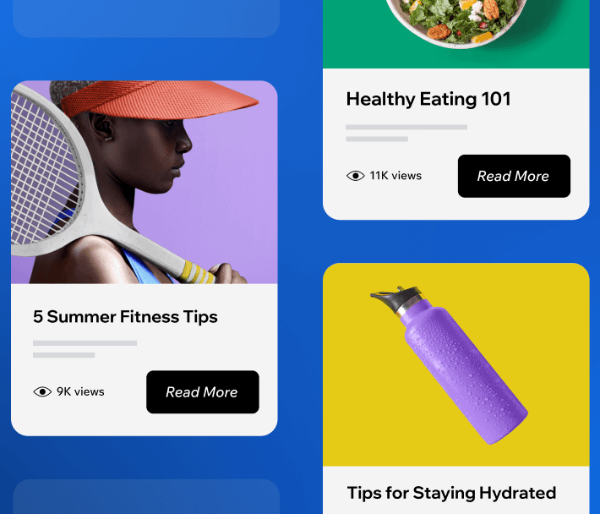Front End Web Developer Job in 3 Steps
Front End Web Developer Job Checklist
Front End Web Developer Job
Building a website is a crucial step for businesses and individuals looking to establish their online presence in today’s digital age. However, one of the most common questions that arise when embarking on this journey is, “How much does it cost to build a website?” The answer to this question is not straightforward, as there are numerous factors to consider that can impact the overall cost of website development. In this article, we will explore the various elements that contribute to the cost of building a website.

Front End Web Developer Job Best Practices
Front End Web Developer Job
What is a website ranking checker?
A website ranking checker is a tool that allows you to monitor the position of your website in search engine results for specific keywords or phrases. These tools provide valuable insights into how well your website is ranking compared to your competitors and help you track your progress over time.
There are a variety of website ranking checkers available, ranging from free to paid versions. Some popular tools include SEMrush, Ahrefs, Moz, and Google Search Console. Each tool offers unique features and metrics that can help you better understand how your website is performing in search engines.
Why is website ranking important?
Website ranking is crucial for businesses looking to increase their online visibility and attract more organic traffic to their website. Research shows that the majority of users click on one of the top three search results, making it essential for businesses to aim for higher rankings on SERPs.
Higher website rankings also lead to increased credibility and trustworthiness in the eyes of consumers. Websites that appear on the first page of search results are often perceived as more authoritative and relevant to users, which can result in higher click-through rates and conversions.
Additionally, website ranking plays a significant role in driving organic traffic to your website. By ranking well for relevant keywords, you can attract users who are actively searching for products or services that you offer, increasing the likelihood of converting them into customers.
How can website ranking checkers help businesses?
Website ranking checkers offer a range of benefits for businesses looking to improve their online visibility and search engine rankings. Here are some ways in which these tools can help businesses:
1. Track keyword rankings: Website ranking checkers allow you to monitor how well your website is ranking for specific keywords or phrases. By tracking your keyword rankings over time, you can identify opportunities for improvement and adjust your SEO strategy accordingly.
2. Monitor competitor rankings: Website ranking checkers also enable you to keep an eye on how your competitors are performing in search engines. By comparing your website’s rankings to those of your competitors, you can identify areas where you may be falling behind and make adjustments to stay ahead of the competition.
3. Identify SEO issues: Website ranking checkers can help you pinpoint any technical or SEO issues that may be affecting your website’s performance in search engines. By identifying and fixing these issues, you can improve your website’s rankings and overall online visibility.
4. Measure the effectiveness of your SEO efforts: Website ranking checkers provide valuable insights into how well your SEO efforts are paying off. By tracking your website’s rankings over time, you can assess the impact of your SEO strategies and make data-driven decisions to improve your results.
5. Improve content strategy: Website ranking checkers can help you identify which content is performing well and which may need improvement. By analyzing your website’s rankings for different pages and keywords, you can develop a more effective content strategy that resonates with your target audience.
1. Start with a unique concept
When developing a new recipe, it is important to start with a unique concept that sets your dish apart from others. Consider combining unexpected flavors, using new cooking techniques, or incorporating unusual ingredients to create a recipe that will pique your readers’ interest. You can draw inspiration from different cuisines, culinary trends, or seasonal ingredients to come up with a concept that is both original and appealing.
2. Experiment with different ingredients and flavors
Building recipes is all about experimentation and creativity. Don’t be afraid to try out new ingredients and flavor combinations to create exciting and delicious dishes. Consider incorporating fresh herbs, spices, citrus zest, or other aromatic ingredients to enhance the flavors of your recipe. Experimenting with different cooking techniques, such as grilling, roasting, or braising, can also add complexity and depth to your dishes.
3. Consider dietary restrictions and preferences
When building recipes for your website, it is important to consider the dietary restrictions and preferences of your audience. Make sure to provide options for different dietary needs, such as vegetarian, gluten-free, dairy-free, or vegan recipes. Including nutritional information, such as calorie count, macronutrients, and allergen information, can also make your recipes more accessible and appealing to a wider audience.
4. Include detailed instructions and tips
When writing out your recipes, be sure to provide detailed instructions that are easy to follow. Include step-by-step directions, cooking times, and temperatures, as well as helpful tips and tricks to ensure success in the kitchen. Consider including photos or videos to visually demonstrate each step of the cooking process, making it easier for your readers to replicate your recipes at home.
5. Test your recipes
Before publishing a new recipe on your website, be sure to test it multiple times to ensure that it is accurate and delicious. Invite friends or family members to sample your dishes and provide feedback on the taste, texture, and presentation. Adjust the seasoning, cooking times, or ingredient ratios as needed to perfect your recipe before sharing it with your audience.
6. Engage with your audience
Building recipes on your website is not just about creating delicious dishes – it is also about engaging with your audience and building a community around your food blog. Encourage your readers to leave comments, ask questions, and share their own experiences with your recipes. Consider hosting cooking demonstrations, virtual cooking classes, or recipe contests to interact with your audience and showcase your culinary skills.

How Front End Web Developer Job Works
Front End Web Developer Job
Conclusion
Web design is a critical component of creating a successful online presence and can significantly impact the performance of your website. By following best practices in web design and focusing on user experience, you can create a visually appealing, user-friendly, and functional website that attracts and retains visitors, drives conversions, and enhances brand reputation. Remember to define your goals, know your audience, keep it simple, optimize for mobile, use high-quality visuals, ensure clear navigation, prioritize loading speed, and test and iterate for continuous improvement. With these tips in mind, you can create an effective website that stands out in the digital landscape and drives success for your business.


